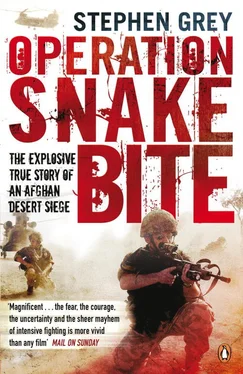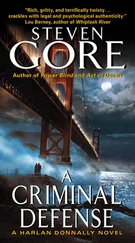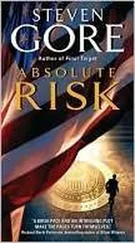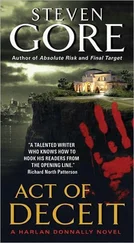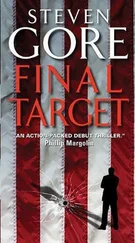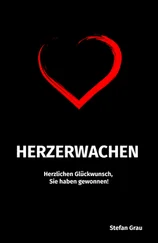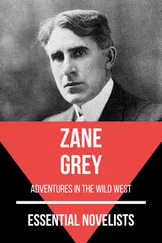It took a couple of hours to get Vasquez out. The only chopper that would come into land was a special operations Black Hawk in the neighbourhood already. Vasquez carried his own rucksack 800 yards to the landing zone. On the chopper, he thought at last he’d get some morphine, but they had none. ‘Oh, man!’ said Vasquez.
Household Cavalry headquarters, 5 miles south of Musa Qala, 02.00
Lieutenant Colonel Ed Smyth-Osbourne crouched by the radio set inside his Sultan light tank. Brigade headquarters was on the line and issuing new orders. US surveillance, he was told, showed signs of large movements to the east of the Musa Qala – the one direction where there were no coalition forces. ‘Either the Taliban are reinforcing or they are starting to pull out,’ said Mackay, speaking from Roshan Hill. He ordered Smyth-Osbourne to collapse his position and move his battle group up to close the Taliban’s last escape route.
By daybreak, meanwhile, all of 1 Fury’s Companies were close to reaching their final objectives. What remained was to clear the town itself.
Bravo Company, 1 Fury, north of Musa Qala, 06.00
Specialist Robert Spafford from 3rd Platoon was tired and pissed off. So when he felt a bit of roof falling down he just said, ‘Fuck it,’ and put his sleeping bag back over his head. Then he felt something bump his head. He was getting even more annoyed and was just getting ready to walk outside and brush it off. But then he realized he couldn’t move and began to think he was suffocating. He started to freak and thought, ‘Fuck, I’m going to die.’ The next thing he remembered was waking up with a tube in his nose and a medic screaming over him and holding a razor, about to cut his throat.
3rd Platoon had arrived in the compound just a couple of hours before. They’d been going all night and just taken over the compound and thrown their kit down to get some rest.
The platoon sergeant, James Knops, a thirty-eight-year-old from San Diego, had been asleep for about an hour when he awoke to screams. A soldier named Nathan Harvey was yelling, ‘Get up, everybody wake up, everybody wake up!
The paratroopers reached for their body armour and weapons, thinking it was a fight. Seeing a gaping hole in the ceiling, some thought it was an RPG or mortar. But Harvey said the roof in the room next door had fallen in. Eight people were buried alive. No one knew how it happened. The only thing above the sleeping paratroopers was a stretch of orange canvas laid out as a recognition panel for friendly aircraft.
More soldiers were running in from outside. ‘Oh, my God, help us get these fuckers out,’ someone shouted. The room was just a chaos of chunks of the masonry and broken logs. The platoon started to dig like dogs.
As luck had it there were only five people under the rubble. Two others were changing guard shift and another was sleeping outside. A couple of those inside managed to pull themselves out of the dust. Knops started grilling them: ‘Hey, look, guys, where are the – you know, who is still in this room? Who was sleeping in this room?’
They gave him a name. Knops said, ‘He’s outside.’ Another name. ‘He’s outside.’ Another name. ‘He’s outside.’ That left three people. They found two of them pretty quickly, Allan Sinanan and Shaun Smith. They were hurt but still breathing. But they couldn’t find Spafford at all.
Apart from Spafford, Smith had the worst deal. He was lying in the dirt up to his chest. He couldn’t move, his legs were messed up, and now everyone was piling into the room and trampling on him. He was alive and that was enough.
‘Oh, I’m hurting,’ he said
‘Shut up! We’ve got to get Spafford.’
The soldiers kept digging and eventually found Spafford’s sleeping bag. They dug on and found his head. When the hole was big enough they opened the bag up. His head just rolled. He was out unconscious. Knops looked over in horror. Spafford was surely dead. He’d been buried that long now under enough pressure that his lungs must have collapsed. He couldn’t spot any breathing. The ‘doc’ rushed up and started to treat him. The medic was a passionate man. He was screaming: ‘Come on, buddy, I love you man, I love you.’ Then Spafford started spluttering and opened his eyes. He did what most men might do if they woke up and saw someone apparently about to slit his throat. He reached up and tried to throttle the medic. It took a while for him to calm down. His first words were: ‘Let me get a cigarette.’
It had been a close call. Captain Canterna remembered the dread that spread throughout the company. In the last few days they had been through a lot ‘but I never heard any shakiness or fear in anyone’s voice until then’. Knops added: ‘These guys had been ambushed. Everybody had been through fire fights, but that was my scariest moment in the whole fifteen months. It was uncontrollable.’
25. Diversion: 10 December
Sangin, 09.51
The radio message said: ‘The helicopter landing site is hot. Helicopter will require an armed escort.
Major Paul Pitchfork and his A Company of the 1st Battalion, Royal Gurkha Rifles, had been fighting now for nearly three hours. They were almost surrounded. Their ammunition was running low. They had two men who were seriously wounded. He had to get them out. The two casualties – who like all the Gurkha soldiers joined the British army from the hill stations of Nepal – were being treated in a mud compound near the banks of the Helmand River.
A photograph records a scene of serenity as they lay calmly waiting for their rescue. While the battle continued outside, behind the walls of a mud-brick compound, soldiers smoked and chatted quietly. In three days’ time, they were supposed to be on R&R. One of the injured, Rifleman Jeevan Shrees, whispered to his platoon sergeant, Bahadur Budha, of his holiday plans. He called him ‘Guruji’, respected teacher. ‘We had planned to hire a nice car to go around Nepal, but unluckily I will miss it,’ he said.
The sergeant-major of the company, Shuresh Thapa, tried to keep his spirits up. But he was worried. Jeevan’s wounds were getting worse. He had a gunshot wound in his upper thigh, and five bone fractures and his legs were swelling. The rescue that day he remembered as nightmarish. ‘Can a helicopter ever land here with all this fighting?’ he wondered.
Outside, Pitchfork had the same question on his mind. The night before, his plan made clear sense. All afternoon the centre of Sangin and all the Afghan army bases in town had been pummelled by the Taliban, the first offensive on the town for months. At nightfall, the enemy had slipped away. But intelligence suggested they would be back in strength in the morning. It all seemed like a deliberate and determined diversion, not so much an attempt to draw NATO forces directly from Musa Qala but to strike a psychological blow that would undermine any coalition victory up there.
Gathering his tired officers round a map board, Pitchfork had come up with a plan to catch them off balance. He had not wanted to fight them in the town, with all the destruction and death of civilians that risked. Instead, he and his Gurkhas would slip out along the river southwards in the dead of night and round into the green zone. They might just catch them off balance and hit them from behind at daybreak.
This bright morning, alone in the green zone, he could see the plan was having the right effect. The Taliban were being drawn away from the town. But his own company’s situation, he recalled, was looking ‘none too rosy’. A Company was being attacked from all sides by a bold enemy, pinned down by accurate fire, hampered by casualties and facing the prospect of an under-resourced 2-mile fight on foot to get back to the Sangin base.
Читать дальше
